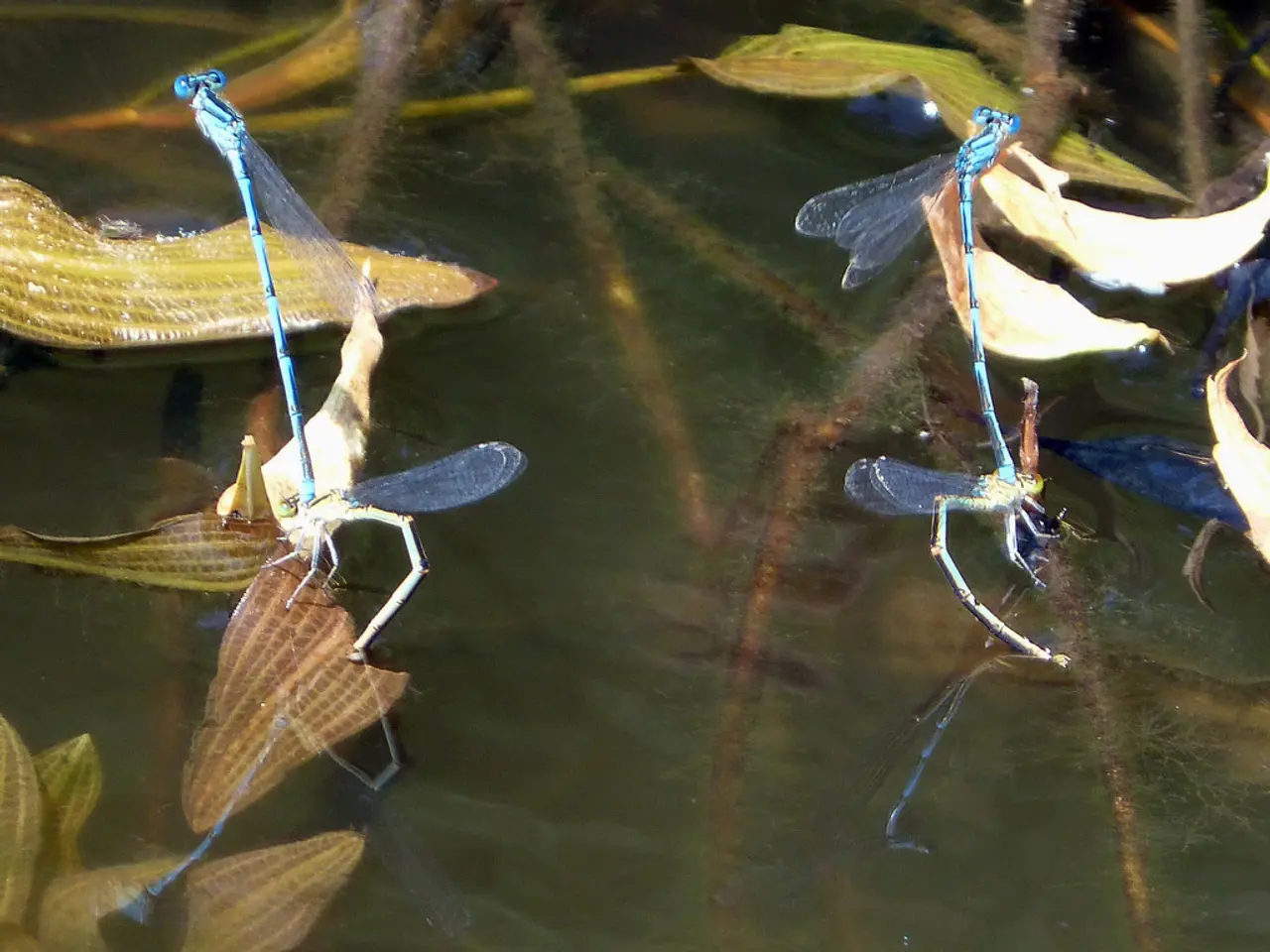Werdersee significantly restricted due to water-borne pest outbreak
Lake Werder, a popular recreational spot in [location], has issued a safety alert due to the presence of water hyacinth in the lake. This aquatic plant, known for its ability to clog waterways and restrict boat movement, has raised concerns about the safety of bathers and potential rescue operations.
The local authorities have enforced a prohibition of swimming and water sports outside the designated bathing area on the lake. This restriction, which comes into effect from the coming weekend, is an additional precautionary measure aimed at preventing accidents and ensuring the safety of all lake users.
The designated bathing area on the north shore of Lake Werder is currently the only safe place to swim. The German Life Saving Association (DLRG), which operates a lifeguard station there, warns that bathers' safety cannot be guaranteed outside this area. Swimming is currently only recommended within the red buoy line in the official bathing area.
Canoeing, rowing, inflatable boats, and stand-up paddleboarding are strongly discouraged on Lake Werder due to the water hyacinth infestation. The plant can pose a danger to swimmers, even experienced ones, as they can get entangled. Moreover, the water hyacinth can wrap around boat propellers, potentially preventing rescue boats from reaching people in distress.
The prohibition of swimming and water sports is a temporary measure and may be lifted once the water hyacinth issue is resolved. However, for the time being, it is advisable to consult the local environmental or water management authority responsible for Lake Werder or any official public notices regarding lake usage and water hyacinth management for authoritative, up-to-date information.
In light of these developments, it is essential to prioritise safety and adhere to the guidelines set by the authorities to ensure a enjoyable and safe experience on Lake Werder.
- With the lake currently facing issues due to water hyacinth, it's crucial to prioritize safety and follow guidelines, even in the realm of science and health-and-wellness.
- The local authority's decisions, like the prohibition of certain water activities and conspicuous warnings, reflect a concern for public well-being, extending from health-and-wellness to environmental-science and climate-change considerations.




